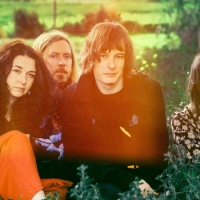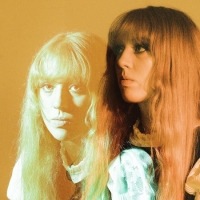 Premiere: Flyying Colours share new single Big Mess ahead of AU tourArriving via Poison City Records, the track is another flurry of guitar-rock from the Melbourne shoegaze group that follows on from Goodtimes last year.
Premiere: Flyying Colours share new single Big Mess ahead of AU tourArriving via Poison City Records, the track is another flurry of guitar-rock from the Melbourne shoegaze group that follows on from Goodtimes last year.

Yes, they’re changing: Inside Tame Impala’s dancefloor-ready The Slow Rush
Tame Impala’s fourth record - out Valentine’s Day - is both Kevin Parker’s most complex and simplistic, somehow at the same time.
Header image by Neil Krug.
Tame Impala have had a trajectory nobody in Perth could’ve foreseen. In their home city, the Kevin Parker-led live band have evolved from ‘battle of the band’ performances to amphitheatres to arenas in the space of ten years; their sound - crafted individually by Parker, for the most part - somehow intensifying and evolving parallel. Undeniably, they are Australia’s largest modern musical export, and Parker’s knack for crafting hypnotic moments in recording is almost prolific: he’s worked alongside everyone from Rihanna and Mark Ronson to Lady Gaga and Travis Scott, and has no doubt influenced and inspired many more beyond that.
The Slow Rush, in many ways, feels like an album that ‘battle of the bands Tame Impala’ (then called The Dee Dee Dums) could never have made. It’s one built upon experimentation and attempts to grow in songwriting, taking the barebones of that distinct Tame Impala sound and pushing it even more-so out of its comfortable limits than Currents’ surprising embrace of washed-out electronica and humming synth. “I can't emphasise enough how important it is to me to feel like I'm just outside my safe zone,” he told Esquire, seemingly trying to recognise ways to continue pushing oneself at the point of releasing your fourth record. “When I'm kind of uncomfortable, that's when I think of melodies.”
The Slow Rush isn’t an album that makes you uncomfortable, even at its most complex. A reworked, slightly shortened version of Borderline - the album’s most accessible moment, perhaps except the strangely absent pre-single Patience - heightens the funk underlays of the single’s catchy hook and pushes the track to the edge. At one point, as the track reaches its crescendoing final minute, squelching basslines fuse with panflutes, dancing guitar, intricately-busy percussion and multiple layers of echoing vocals. It’s one of the album’s busiest moments; an onslaught of thickly-layered melodies and rhythms that burst into the track’s final chorus. Yet, it’s so well-built that this intensity doesn’t feel even the slightest bit confronting.
Elsewhere, in another nod to the album’s deep complexities, Kevin Parker attempts to fuse the outer edges of his wide-ranging sound into one song. The long-winding, six-minute epic Breathe Deeper seemingly appears to be a Currents-esque blend of shimmering synth and punchy psych-pop, before it quietens down four-and-a-half minutes in. Then, after a brief interlude-esque break, it descends into chaos: A strobe-lit nod to acid house that at its most vicious, feels like a dizzying offcut from Justice’s Cross or The Chemical Brothers’ defining big-beat records.
Posthumous Forgiveness is another example: the first half a slow-and-steady dissection of his father’s passing (“Ever since I was a small boy, no one else compared to you,” the song opens); the second a shimmering and sombre reflection on Parker’s father not seeing his success (“Wanna tell you about the time I was in Abbey Road or the time that I had Mick Jagger on the phone,” he sings. “I thought of you when he spoke.”).
While Posthumous Forgiveness aches with a sense of loss, much of The Slow Rush feels therapeutic. Incepted as a place marginalised communities (black people and queer people especially) could dance and find comfort, dancefloors have always held a healing property, a feeling of almost-magic that removes worries and encourages expression. Robyn, someone has fleshed out dance music’s healing properties to its most potent, explains it best: “Club culture has always encouraged people to come together in a space where they can be themselves and explore things that they might not be able to explore in other places.”
Across The Slow Rush, Kevin Parker seemingly attempts to tap into this spirit. One More Year moves warping, distorted synth with a gentle kickdrum stomp in one of the album’s more subtle attempts at dance, while Lost In Yesterday’s lyrical analysis of nostalgia’s attractiveness feels perfect paired with its thick, disco-reminiscent percussion and funk pulse, plucked straight from the 90s. Glitter, meanwhile, is a two-minute stint of Tame Impala going full disco that’s over way too soon; its grooves reminiscent of Random Access Memories’ best moments but stripped back to its most subtle (the track is almost entirely instrumental, bar a repeating vocal: “I just want to be alone…” it wanders off).
In press interviews surrounding The Slow Rush, Kevin Parker keeps placing an emphasis on time. After Currents thrust Parker further into the international spotlight than he’d ever been, he took a step back. For a period of two years, he worked almost exclusively on guest features - those songwriting credits listed above, plus others, imprinting his Midas touch on almost every popular modern genre - before giving himself enough time to be energised to start work on their next era, which happened around mid-2018. In this time, he reflected: memories of the past; flashes forward into probable futures; the timing of pivotal moments not just for Tame Impala, but Kevin Parker personally.
On The Slow Rush, you get the idea that Kevin Parker is attempting to grapple with these, and the sense of time that surrounds them. The Slow Rush’s chanting opener sings “we’re on a rollercoaster stuck on its loopy-loop,” amongst repeating cries of “one more year…”, while Lost In Yesterday - as mentioned - plays with the addictiveness of nostalgia (“Does it help to get lost in yesterday?”). “I would never sing about time as an abstract concept, it’s only about how it makes us feel a certain way,” he tells DIY Magazine. “Anxiety for the future, and getting stuck on being nostalgic.”
In 2020, there’s a lot to be anxious about. Similarly, there’s plenty of reasons to be nostalgic - why wouldn’t you look back to a better time? One where you weren’t constantly perplexed by everything from extreme fascism to a growing environmental crisis? The Slow Rush isn’t necessarily built for everyone - or anyone - to find the answer that, but for an hour or so, it certainly stops you from thinking about it.
Tame Impala's new album, The Slow Rush, is out February 14th. Catch them on tour this April, with special guests Khruangbin.
Follow Tame Impala: FACEBOOK
 Premiere: Flyying Colours share new single Big Mess ahead of AU tourArriving via Poison City Records, the track is another flurry of guitar-rock from the Melbourne shoegaze group that follows on from Goodtimes last year.
Premiere: Flyying Colours share new single Big Mess ahead of AU tourArriving via Poison City Records, the track is another flurry of guitar-rock from the Melbourne shoegaze group that follows on from Goodtimes last year.
 Premiere: Perth up-and-comers Joan & The Giants share the clip for BloodstreamThe west coast four-piece continue to strive, with their latest single arriving ahead of a single launch at Clancy's Fremantle on February 15th.
Premiere: Perth up-and-comers Joan & The Giants share the clip for BloodstreamThe west coast four-piece continue to strive, with their latest single arriving ahead of a single launch at Clancy's Fremantle on February 15th.